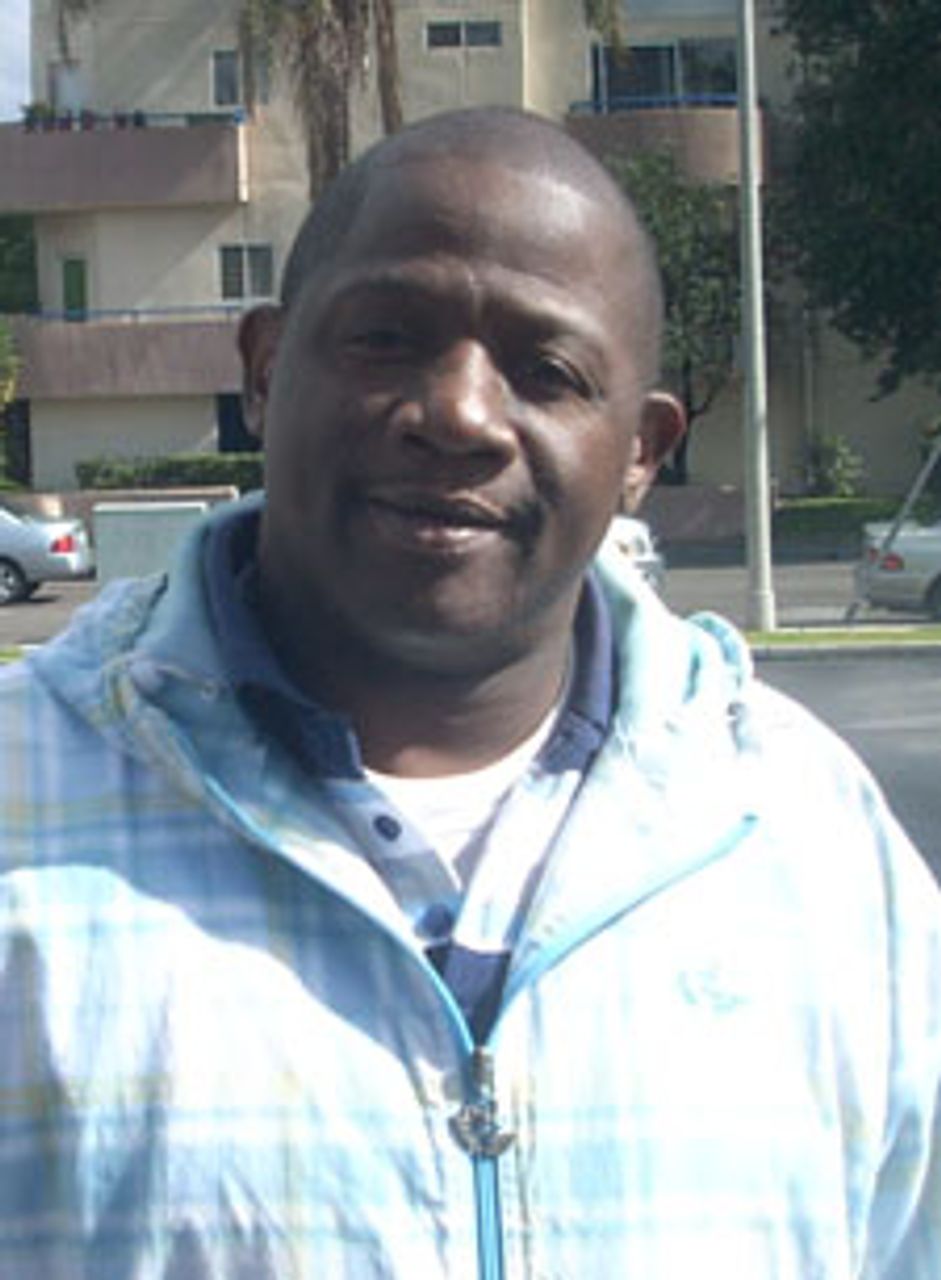California officials are preparing to vote on a series of measures designed to address the state's $42 billion budget deficit, the largest in its history. The measures were initially drafted in closed-door sessions of the so-called Big 5: Governor Arnold Schwarzenegger, Democratic Senate President Pro Tem Darrell Steinberg and Democratic Assembly Speaker Karen Bass, along with Republican Senate Minority Leader Dave Codgill and Assembly Minority Leader Michael Villines.
The secret meetings, which ensured that there was neither public input into nor oversight of the discussions, are an expression of a highly undemocratic process. The welfare of over 38 million Californians is being sacrificed in an effort to protect the interests of big business and the wealthy in the face of the worst fiscal crisis in the state's history.
The remainder of the State Senate and Assembly, which is being asked to pass the budget measures after having only had a handful of days for their review, is expected to vote on the proposed legislation over the weekend.
The measures worked out by the "Big 5" include $15 billion in cuts to social programs, $14.4 billion in regressive tax increases and $12 billion in new borrowing. The potential impact of these cuts on the residents of the most populous state in the country cannot be understated.
The largest cut, $8 billion, will be made to public education institutions: $890 million from state colleges and universities, and the remainder from K-12 and community colleges.
The two largest university systems, the California State and University of California systems, have already reduced enrollments by 10,000 and 2,300 students respectively. These numbers, along with recently enacted funding cuts, will most likely increase if the current budget is passed, depriving the children of tens of thousands of working people of the ability to receive a high-quality education at an even remotely affordable price.
Senate Democrats originally proposed $2.9 billion in cuts to state education funding, a proposal that was later vetoed by the governor. The World Socialist Web Site noted in a January 21 article that Sacramento officials would most likely dramatically increase the $2.9 billion figure. (See "State government suspends billions in payments: California in dire financial straits") Recent events have shown that the increased cuts in education were enacted with full support at the highest levels of the state Democratic Party.
Cost-of-living increases for the CALWORKS welfare-to-work program are also to be stopped, saving the state an estimated $154 million. While this is an almost negligible sum when compared with the collective wealth of the top one-tenth of 1 percent of the state's population, the cut will be devastating for the hundreds of thousands of poor families dependent upon such funding.
Developmental services offered by the state's regional centers will be reduced by 3 percent, for a total of $85 million in lost funding. The California regional centers offer therapeutic services, free of cost, to the state's developmentally disabled residents, primarily children. California, like many other areas of the country, has recently experienced a sharp rise in cases of children diagnosed with pervasive developmental disorder, which involves significant impairments in socialization and communication, with its most common category being the disorder known as autism.
Funding for state-funded mental health services provided under Proposition 63, known as the California Mental Health Services Act, will be cut by $226.7 million. The act was passed by California voters in 2004 and funds mental health services by levying an extra 1 percent tax on the incomes of residents earning more than $1 million per year.
State-provided supplemental payments to Social Security Income (SSI) will also be significantly reduced. Including a suspension of further cost-of-living increases, the funds will be reduced by a total of $595 million.
Also on the docket for cuts is funding to medical services provided by the state Department of Corrections. Three US district court judges recently ordered the state to reduce its overall prison population by one third as a result of a lawsuit brought on behalf of inmates protesting against already inadequate health facilities. State officials are appealing the ruling, despite its as-of-yet tentative character, and have also opted to reduce the medical budget for the Department of Corrections by 10 percent in the current budget proposal.
Like the massive cuts in public services, the proposed measures aimed at boosting state revenues will also disproportionately affect the state's working class and poor residents. Among the proposed increases is a near doubling of the vehicle license fee from the current 0.65 percent to 1.15 percent of the value of a car or truck.
In addition to the vehicle license fee increase, sales taxes will increase by 1 cent on the dollar to a new high of 9.75 percent, the gasoline tax will increase by 12 cents per gallon, and a new surcharge of up to 5 percent is to be imposed on existing personal income taxes.
The furloughing of state workers for two days every month—an action enacted last month that amounts to a 9.2 percent pay cut—will continue. This reduction in compensation will be made worse by the further elimination of two paid holidays.
In a move that expresses the contempt of the political establishment for the needs of the state's population—as well as mass sentiment—included in the budget measures is a tax break amounting to several hundred million dollars for large corporations that operate in California, but that conduct a significant portion of their business outside the state.
In a further sop to the right wing, according to a February 11 article in the Los Angeles Times, the proposed measures would also relax environmental and labor regulations that the Republican Party has long sought to overturn or delay.
The State Senate and Assembly are expected to vote on the budget bill this coming Saturday. Passage of the bill will require a two-thirds majority in both houses, and it remains uncertain whether or not this threshold will be met, as Republican senators have vociferously opposed any tax increases to balance the budget. This is despite the fact that provisions have been inserted into the bill that considerably lighten the tax burden on large corporations.
If a budget is not passed by the end of the weekend, Governor Schwarzenegger has promised to lay off a minimum of 10,000 state workers. In short, even if the budget measures do not go through, the state's working population will suffer immediate consequences as a result of the fiscal crisis. This is under conditions in which California currently has some of the highest unemployment and foreclosure rates in the country.
The WSWS spoke with workers outside the state Employment Development Department office in Canoga Park, California, last week.
 Renard Young
Renard YoungOne worker, Renard Young, spoke about the popular anger being caused by the state's economic crisis. He said, "Every day that goes by makes the situation worse and worse, and some people are simply running out of patience. It's obvious that these politicians pretty much work for themselves and their friends.
"From what I'm seeing, this guy [Bernard] Madoff was politically pretty well connected. How are you going to let this guy rip people off of billions of dollars, having all the evidence in the world that he did it, while regular people would be doing hard time for stealing a loaf of bread from a grocery store?"
 Oscar Alegria
Oscar AlegriaAnother unemployed worker, Oscar Alegria, spoke of the difficulties many workers are having in collecting benefits and finding new employment in the current economic climate.
"I used to make $22 per hour and now I can't find anything for $16 an hour or even $13. I have a lot of experience doing many different things but no one will hire me," he said.
The WSWS also spoke with one of the workers affected by the furlough of state employees that began this month. Dave, from the California Film Commission, described the furloughs that are currently scheduled to last until June 2010, as "18 months of hardship."
"I'm probably more fortunate than most," he explained. "I'm single; I don't have a family to support or a house mortgage to pay. But I still feel it.
"I have co-workers who are paying mortgages. I have one co-worker who was barely scraping by as it was. Now, a 10 percent cut is for us approximately $300 a month. He's being forced to move out of his apartment and rent a room from a friend of his. That's the only way he can make it, unless he can find a part-time job two Fridays a month. "The morale is not that good," Dave continued. "Today we were told that our office is probably OK for now, but there's no certainty next week. With Schwarzenegger threatening 10,000 layoffs? It's not good. I have friends in Sacramento and in Santa Barbara who work for the state. We feel that the workload issue has not been addressed. Ultimately, I'll have 16 hours less per month to do the same amount of work as before. That's a big concern for me. My desk is a very busy one, and I already feel I'm working as hard as I can."
When asked about the role of the Democratic Party in the present situation, Dave said, "My opinion is that obviously they haven't been very effective. They don't seem to be doing a very good job. The Republicans are a problem, but it seems like the Democratic leaders don't have much of a backbone. My view is that there's not much of a difference on a lot of the important issues."
